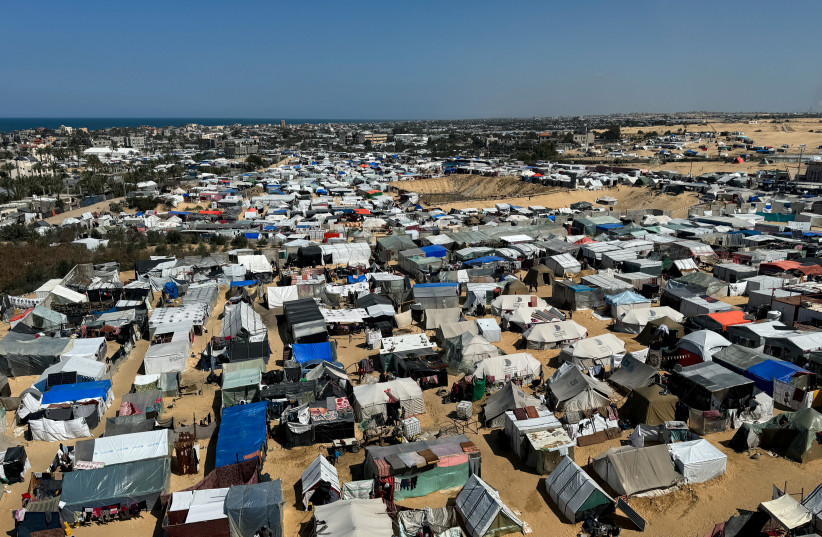The prospect of Gazans crossing into Egypt from the border town of Rafah to escape a military assault would make the resolution of the Israeli-Palestinian conflict impossible and cause an "atrocious dilemma" for the people fleeing the UN refugee chief said on Friday.
Filippo Grandi, United Nations High Commissioner for Refugees (UNHCR,) said "We must fervently do everything" to avoid such an outflow of the Gazan population.
"Another refugee crisis from Gaza into Egypt, I can assure you... would make the resolution of the Palestinian refugee question as a consequence of the Israeli-Palestinian conflict impossible," Grandi told Reuters at UNHCR headquarters in Geneva.
Around 5.6 million Palestinian refugees currently live in Jordan, Lebanon, Syria, the West Bank, and Gaza, mainly the descendants of those who fled their homes around the 1948 war with the newly formed Jewish state of Israel.
The fate of Palestinian refugees is one of the thorniest issues in the moribund peace process. Palestinians and Arab states say a deal should include the right of those refugees and their descendants to return, something Israel has always rejected.

Sparking global condemnation
Israeli plans to assault Rafah, where more than a million Gazans have been sheltering from a military offensive further north, have drawn widespread condemnation.
Even Israel's closest ally, the United States, has warned Prime Minister Benjamin Netanyahu that the country would face global isolation if it goes ahead.
Grandi said an attack on Rafah may make the movement of Gazans into Egypt "the only option for safety available."
"This dilemma is unacceptable and the responsibility to avoid this dilemma lies squarely in this particular case with Israel, the occupying power in Gaza," he said.
The Israeli military says four Hamas battalions remain in the city as well as an unknown number of senior commanders of the Islamist movement.
Grandi said UNHCR was stocking tents and supplies and working with countries in the region on coming up with their contingency plans for the possible arrival of Gazans.
"We are looking at the region and that the possibility not only of the outflow but also that the conflict may expand," Grandi said.
"But I repeat, we must not arrive at that atrocious dilemma, which would be really almost the end of the road for what is really important here: ultimate peace."
